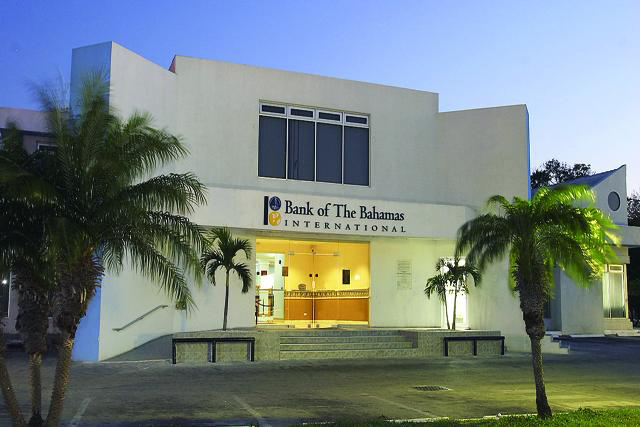Back in June last year, Chief Executive Officer of the Small Business Bureau, Dr Lowell Porter, expressed open disappointment over the fact that the country’s commercial banking sector did not work with the Bureau to provide more funding options for small businesses and startups across several sectors of the economy. Dr Porter is by no means the first state-sector official concerned with small business development to make this observation. He was, however, the first such official, as far back as we can remember to say so publicly.
More recently, the Private Sector Commission (PSC) utilised its column in this year’s Georgetown Chamber of Commerce Business Guyana periodical to take a tilt at what it says are the “notoriously high” interest rates of the local commercial banking sector. The comment may well have caught many observers by surprise since whilst the business sector has been brooding over interest rates for many years, it has held a strictly conservative line when it comes to assuming a public posture on the matter.
There is, in these days of what appears to be a growing appetite for one form of entrepreneurship or another here in Guyana, no escaping engaging the commercial banks, alternative sources of lending for investment in business ventures being scarce. And the banking sector, it seems, is doubling down on its tough approach to ‘getting into bed’ with the small business sector. Quite recently, the Head of an agency whose responsibilities include supporting growth and expansion in the small business sector related to this newspaper that during an encounter with a local commercial bank official he had been told more-or-less ‘point blank’ that giving small businesses ‘a leg up’ so to speak was not exactly high on the list of that particular bank’s scale of priorities.
Just this week the Stabroek Business engaged a few young and forward-looking emerging entrepreneurs, all of whom told us that if anything was likely to cause them to change course as far as their entrepreneurial pursuits were concerned, it would be the difficulties that they face in securing adequate funding for product development, manufacture and marketing.
Even if it may be little consolation, the reality is that small businesses in Guyana are not alone insofar as the tight-fistedness of the commercial banking sector is concerned. It is, it seems, a common challenge for small businesses across the region. Elsewhere in the Caribbean, multilateral lending agencies have been seeking to incentivise regional commercial banks to expand their lending portfolios for medium and small enterprises by providing additional security coverage. In The Bahamas, where the rejection rate on small business financing applications has reportedly reached as high as 85%, the Inter-American Development Bank (IDB) has stepped in with a US$25 million loan designed to help reverse that trend. The initiative represents the outcome of a joint public/private sector initiative designed to do more to unlock the growth potential of micro, small and medium-sized enterprises (MSMEs). Of the total amount, some US$22 million will be sunk into a Credit Enhancement Facility (CEF) overseen by the country’s Small Business Development Centre (SBDC).
The IDB’s intervention seeks to overcome the reluctance of commercial banks to extend loans to Bahamian MSMEs that find difficulty meeting collateral requirements,” which is pretty much the identical problem facing our own small businesses, except that up until now the IDB has not looked our way yet.
Setting aside the incentivising of the banking sector to expand its small business portfolio through this extra security coverage, the IDB also wants its initiative to “help make inroads into lending practices where 77 % of credit issued in The Bahamas goes to personal loans rather than productive sectors of the Bahamian economy like housing (mortgages) and commercial loans.
The IDB’s assessment that the fragility of the “enabling environment for private sector investment” is one of The Bahamas’ key structural weaknesses could well be applied to Guyana where cash-strapped small businesses and enterprises still waiting to emerge, continue to impact negatively on attempts to realise higher GDP growth rates. Simultaneously, the strangulation of business growth on account of limited avenues for borrowing continues to strangle job creation. The problem is particularly worrisome for Guyana where the overwhelming majority of businesses fall into the small and
medium-sized categories. The IDB’s position on The Bahamas that “In order to improve productivity and reverse a decline in external competitiveness, the government needs to address structural impediments particularly an enabling environment for private sector investment,” could just as well apply to Guyana. A recent study suggests that less than a quarter of the companies undertaking investment projects in The Bahamas have been funded by private banks, and access to credit is particularly harder for SMEs, where rejection rates are as high as 85%, higher than Barbados at 35%, Jamaica at 55%, and Suriname at 27%. We were unable to secure a figure for Guyana.
One inevitable result of this phenomenon in The Bahamas (and again much of this also applies in Guyana) is that small businesses must rely heavily on alternative financing including family support and retained earnings. In The Bahamas around half of the medium-sized and small businesses rely on that type of financial backing. Interestingly, while reports suggest that the six Bahamas-based institutions, including the three Canadian-owned banks, possess a total B$12.2 billion in assets and solid liquidity, the squeeze on lending to small businesses persists. On the whole, credit to the private sector in The Bahamas, particularly loans, has been falling, with a decline of 5.6 % over the last year.
As is the case in Guyana, the commercial banking sector in The Bahamas typically does not prioritize small businesses, favouring mortgages and consumer loans instead.
The nature of the problem in The Bahamas is reflected in the fact that more than 90% of the approximately 17,000 businesses in the country are small and medium-sized enterprises that hire around 47% of all employees. This characteristic also applies in the Guyana business sector.






